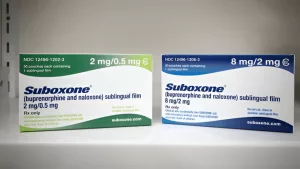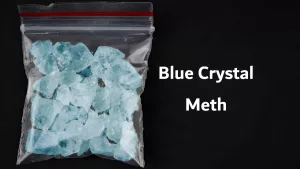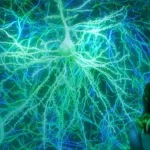Hangovers can be miserable, bringing on headaches, nausea, lightheadedness, excessive thirst, and sensitivity to light or sound. While there’s no miracle cure, several approaches can ease recovery.
Curious which hangover tactics actually help? Read on.
Roughly of people who drink have reported experiencing hangovers.
Healthline consulted with Gantt Galloway, PharmD, senior scientist in the Addiction & Pharmacology Research Laboratory at the California Pacific Medical Center Research Institute in San Francisco, California, to discuss which strategies are most effective.
Hangover Do’s and Don’ts
1. Do hydrate. Alcohol is a diuretic, so it increases water loss from your body. Replenishing fluids won’t erase a hangover, but it can significantly lessen the discomfort. Opt for a sports drink like Gatorade to replace electrolytes and provide some sugar.
2. Do eat. Try to have food both before and after drinking. Eating beforehand slows alcohol absorption. Don’t let drinking replace proper meals.
“There are indications that part of what makes people feel bad is not eating enough while drinking,” Galloway noted. “Basic self-care goes a long way.”
3. Do sleep. Alcohol frequently disrupts sleep patterns. “Aside from any other effects alcohol has, sleep disturbance worsens how you feel the next day and impairs cognition,” Galloway said. Since alcohol lowers sleep quality, aim to be sober for as much of your sleep period as possible.
4. Do take Vitamin B6. It won’t eliminate a hangover, but it can ease symptoms. Vitamin B6 is present in poultry, fish, liver, potatoes, and non-citrus fruits, and it’s commonly included in multivitamins.
5. Don’t drive or operate heavy equipment. Even without intoxication, hangovers impair reaction time and judgment. These effects can last up to 16 hours, so if you drank enough to be hungover, avoid planning to drive the following day.
6. Don’t take Tylenol. Acetaminophen (Tylenol) slows alcohol metabolism and, at high doses, can damage the liver. Galloway also warns against using Nyquil for alcohol content because it contains acetaminophen.
He suggests using an NSAID like ibuprofen or aspirin instead, which can also reduce inflammation linked to hangover symptoms.
7. Don’t keep drinking. Occasional drinking poses limited risk, but habitually drinking to the point of hangovers is a major risk factor for alcohol use disorder.
Myths Busted

It can be tricky to separate fact from folklore when it comes to hangovers. Don’t be misled by these common misconceptions.
1. You sleep better when you’re drunk. A nightcap may seem to help you fall asleep, but alcohol disrupts sleep architecture—especially REM sleep, which is crucial for restoration.
“Many people know alcohol can make them sleepy, but consuming two or more drinks leads to a notable decline in sleep quality,” Galloway explained. “Your sleep is less restorative, so you’ll feel less refreshed even at alcohol amounts below those that cause hangover.”
2. Caffeine can cure a hangover. “If you’re sleep-deprived because of alcohol, a bit of caffeine might help wake you up,” Galloway said. But caffeine can worsen two common hangover features: nausea and tremors.
3. You’re safe to drive once the alcohol is gone. Even after alcohol has left your bloodstream, your reflexes and cognitive function can remain impaired. “People often think drugs only affect you while present in the body,” Galloway said. “You can detect EEG changes up to 16 hours after alcohol is gone.” Anyone driving or operating machinery should be cautious if hungover.
4. You don’t have a problem. Occasional hangovers aren’t necessarily alarming, but if you’re among the roughly 25 percent of college students who get hungover weekly — or the 15 percent of workers who do so monthly — it may be time to reassess.
“Many believe addiction is solely physical dependence—needing more to avoid sickness,” Galloway said. “But addiction is about how you relate to alcohol. Frequent hangovers that cause problems are a warning sign.”
What’s Actually True

Some conventional wisdom does hold up:
1. Darker spirits cause worse hangovers than clear ones. Dark liquors have congeners—byproducts from fermentation and aging—found in beverages like brandy, red wine, and certain tequilas. Congeners can intensify and prolong hangovers. Clear spirits such as vodka, gin, and silver rum have fewer congeners.
2. Eating salty, fatty food helps. Foods rich in fat and protein can slow alcohol absorption, giving your body time to metabolize alcohol. Salt helps replace electrolytes lost through increased urination, and meats provide Vitamin B6, which can lessen hangover symptoms.
3. Another drink helps. While a hangover is distinct from alcohol withdrawal, some people experience acute discontinuation symptoms that a little alcohol can temporarily soothe. Galloway cautions that this isn’t a healthy long-term approach.
“Traditional wisdom says it works,” he said. “But if you drank enough to be substantially impaired and uncomfortable the next day, reflect on your drinking habits. More alcohol the following day may perpetuate excessive consumption.”
“If you’re frequently hungover and think you can’t develop alcoholism because you’re currently in control, you’re not alone—many who become alcoholic never thought it would happen to them,” Galloway added.

























Leave a Reply
You must be logged in to post a comment.